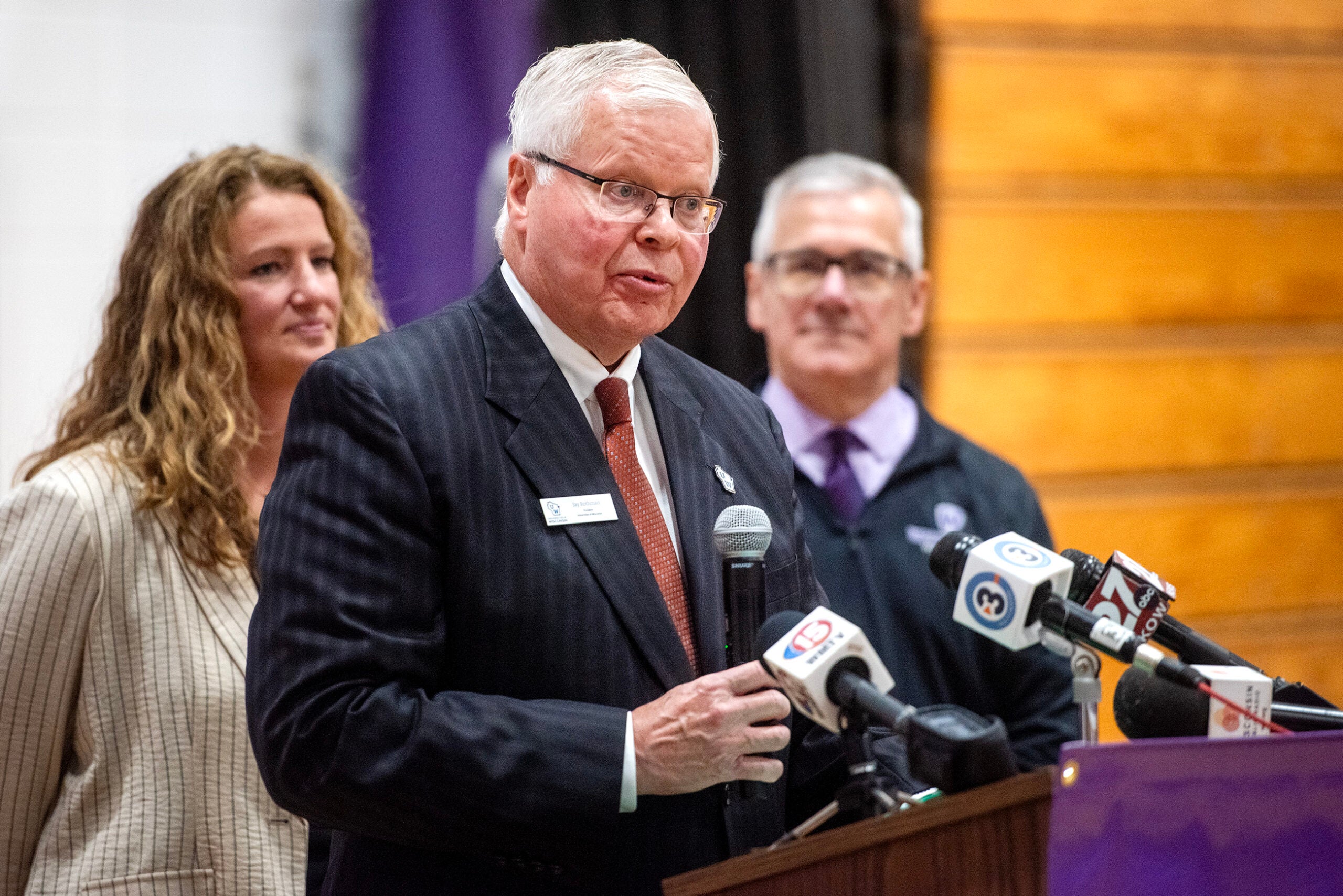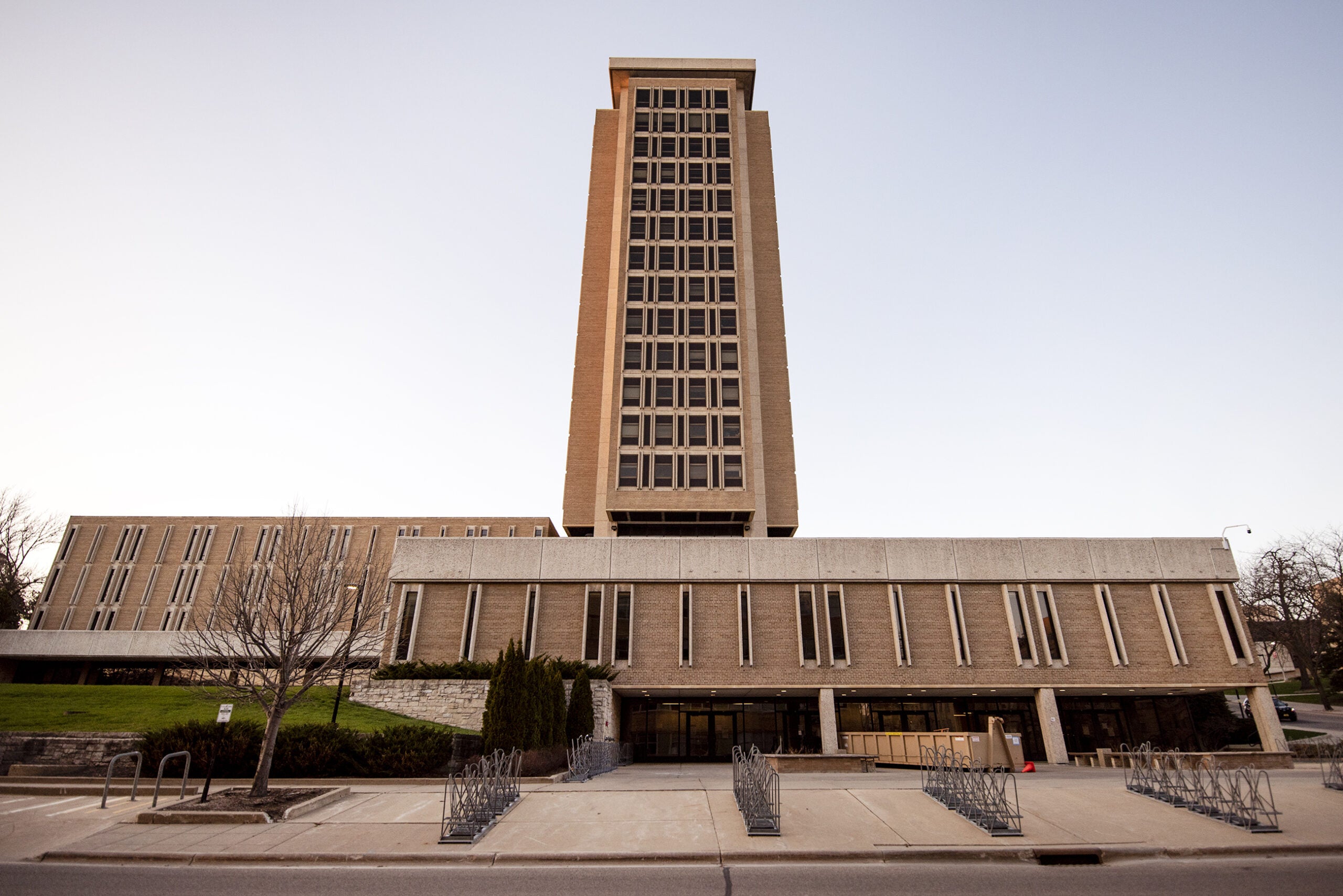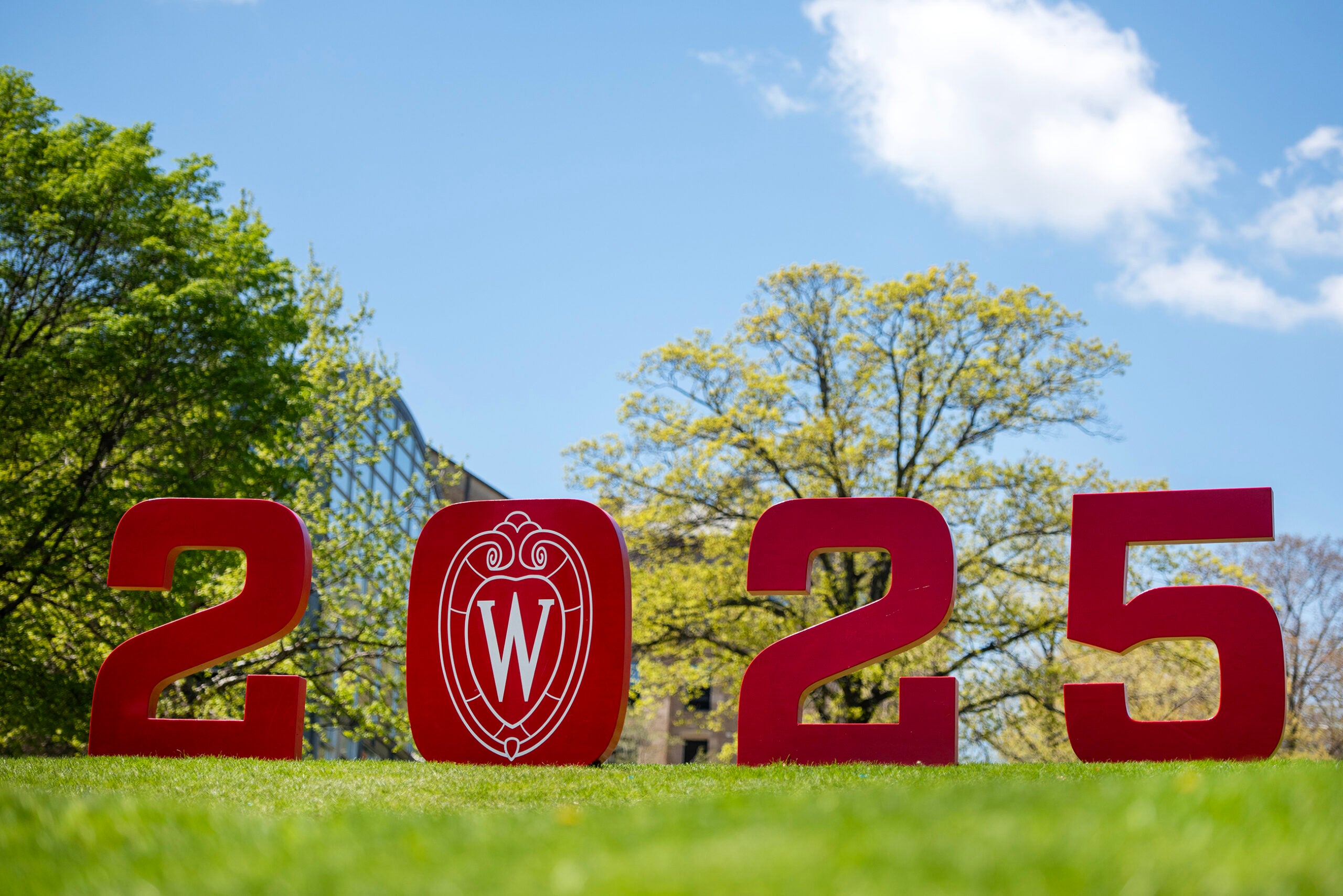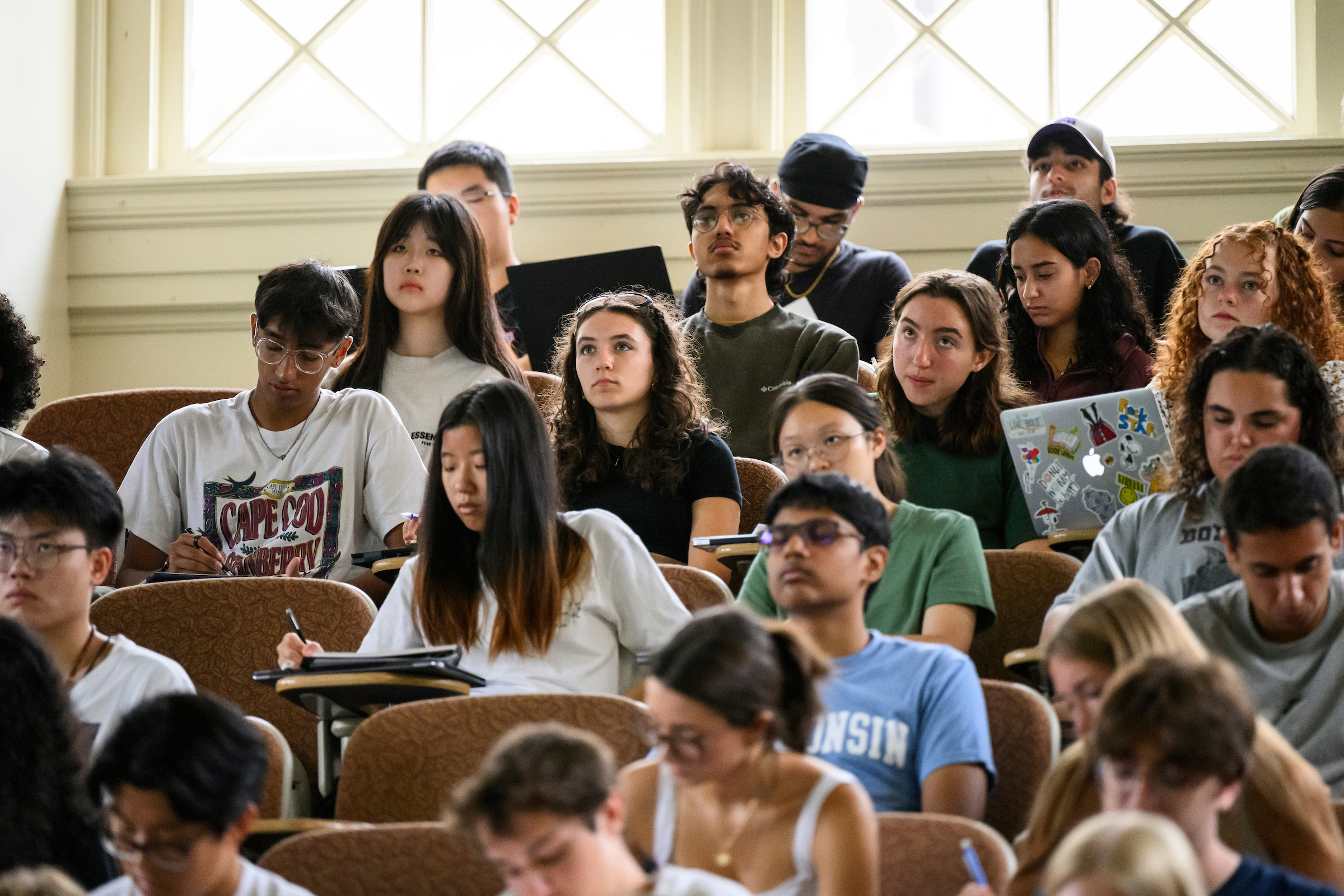The University of Wisconsin will no longer require diversity, equity and inclusion statements from job applicants, UW System President Jay Rothman announced Thursday.
The move comes after Republican Assembly Speaker Robin Vos has threatened to cut state funding to Wisconsin’s public universities. Specifically, Vos has criticized DEI programming at UW as an attempt to “indoctrinate” students with taxpayer dollars.
It’s common for universities to ask potential faculty to submit statements describing how they’ve used their work to further diversity, equity and inclusion. Rothman did not provide an estimate of how many UW positions have previously required such statements, but described the number as “limited.”
News with a little more humanity
WPR’s “Wisconsin Today” newsletter keeps you connected to the state you love without feeling overwhelmed. No paywall. No agenda. No corporate filter.
“We remain absolutely committed to the principles of DEI,” Rothman told reporters Thursday. “But when some people believe mandatory diversity statement in employment applications are political litmus tests, then we are not being inclusive.”
Sometimes applicants use such statements to discuss what they could offer as member of group that’s underrepresented in academia. Critics have charged that such statements are being used to pressure applicants into affirming liberal viewpoints.
Republican Assembly leader contends university programming is overly fixated on race, gender
During an interview last week with WISN-AM Radio, Vos, a Republican from Rochester, contended that DEI programming at UW campuses was creating division by being overly focused on “race and gender and sexual preference.”
“Now, I don’t believe in discrimination,” Vos told conservative host Jay Weber. “I don’t think anybody listening does either. Everybody should be allowed to succeed based on their merit, and the quality of the work that they produce. But what we’re doing instead on campus is we are instilling in kids, students, that the only criteria that matters to your success in society today is the color of your parents’ skin.”
Vos has also said he’d support cutting nearly $14 million in UW’s budget for positions explicitly dedicated to diversity, equity and inclusion. A WisPolitics analysis found that such positions cost $13.6 million per year, which represents 0.2 percent of the system’s $6.9 billion annual operating budget.
“It’s not like they have one office sitting in some academic hall on campus,” Vos said of DEI programming. “They literally have these people burrowed in like a tick on every single college campus, but in every single college department, so it’s so deep in a lot of these things.”
That type of analogy is an example of how the work of DEI offices has been demonized and mischaracterized, said Paulette Granberry Russell, who leads the National Association of Diversity Officers in Higher Education.
“I think that these legislative efforts give a false narrative of the power that diversity officers actually have,” she said. “The reality is that diversity officers often are under-resourced. I think this is reflected in the high turnover in our profession.”
Granberry Russell says the purpose of DEI programming is to meet the needs of all students. Those needs may vary for students from underrepresented backgrounds, she said, giving examples, such as disability status, national origin, gender identity or whether a student is the first in their family to go to college or comes from a rural area.
“Our campus communities are not homogeneous, and it’s the responsibility of our institutions by admitting students from diverse backgrounds to work hard to assure the success of those students,” she said. “No one size fits all.”
Republican-led Legislature is currently crafting next two-year budget
Lawmakers are currently in the process of drafting the state’s next two-year spending plan, after the Legislature’s Republican-led finance committee scrapped almost all of the budget proposed by Democratic Gov. Tony Evers. The new fiscal year takes effect July 1. In the meantime, the Republican-controlled Committee on Colleges and Universities has been holding a series of hearings on what conservatives charge is liberal bias and a lack of intellectual diversity on UW campuses.
Rothman used the final hearing Thursday to express support for academic freedom and free speech at UW. He also took the opportunity to announce to lawmakers the planned elimination of DEI statements.
UW officials have no plans to back budget cuts for positions or programming dedicated to DEI, Rothman told reporters Thursday. He also said the elimination of DEI statements would not preclude university officials from asking about the promotion of diversity and inclusion during job interviews. And, he said, that definition of diversity should be broad.
“It is time to expand what we think of inclusion to include issues around veterans, disability status, socioeconomic status, first generation students status, and viewpoint diversity, in addition to dealing with underrepresented groups in our society,” Rothman said.
Racial discrimination at the UW System made headlines earlier this month, after a white UW-Madison student posted a racist video that included slurs and threats against Black community members. In response, more than 200 students protested outside Chancellor Jennifer Mnookin’s office, calling for the expulsion of the student behind the video. Mnookin condemned the video’s contents in a letter, but said that, as a public university, UW-Madison is legally constrained from taking action against the student over the video.
Across the country, GOP state lawmakers are going after DEI programming
The UW’s elimination of required DEI statements will take effect June 30 and comes amid a wave of Republican-backed state legislation targeting diversity, equity and inclusion efforts at colleges and universities.
Legislation has been proposed in at least 20 states that would curtail such initiatives in some form, according to a tracker from the Chronicle of Higher of Education. That includes banning mandatory DEI statements, prohibiting DEI offices or staff and prohibiting institutions from considering race, sex, color, ethnicity or national origin in admissions or employment.
Last month in North Dakota, the governor signed a law that bans public colleges and universities from asking for diversity, equity and inclusion statements from prospective students and job applicants. It also bans those institutions from requiring diversity trainings, other than what’s offered for credit.
Granberry Russell contends that political opposition to DEI comes, in part, from the false notion that diversity, equity and inclusion programs are opposed to free speech.
“When we talk about diversity, we have to acknowledge that includes different perspectives and viewpoints,” she said. “Even if diversity offices are dismantled, diversity on college campuses will not go away. … Issues of equity and inclusion will still be present, whether those offices exist or do not exist.”
Editor’s note: Wisconsin Public Radio is a service of the University of Wisconsin-Madison and the Wisconsin Educational Communications Board.
Wisconsin Public Radio, © Copyright 2025, Board of Regents of the University of Wisconsin System and Wisconsin Educational Communications Board.







